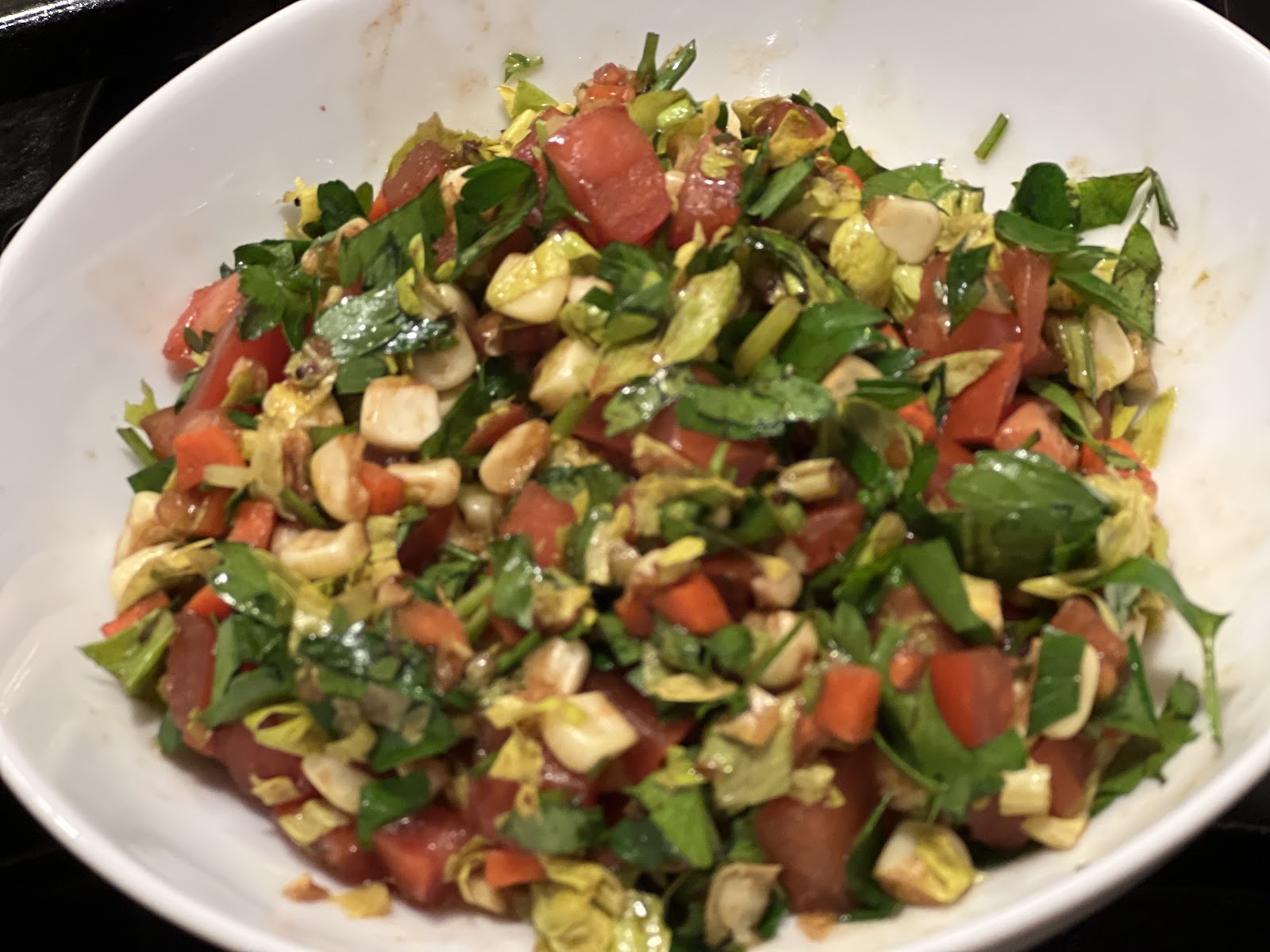 Restaurants live or die on their repeat business. To bring their customers back again and again, some rely on exceptional food and personalized service, others try affordable prices and a pleasant setting. Il Fornaio adds another element to the equation.
Restaurants live or die on their repeat business. To bring their customers back again and again, some rely on exceptional food and personalized service, others try affordable prices and a pleasant setting. Il Fornaio adds another element to the equation.For two weeks each month, all 21 branches of Il Fornaio ("The Baker") feature recipes from a different region of Italy: Fruiuli-Venezia Giulia, Lazio, Puglia, Liguria, Abruzzo, Scilia.... The dishes illustrate that region's distinctive ingredients and cooking styles. Nothing can compare with actually going to Italy and having a
 great meal, but when we want a delicious, affordable Italian dinner, it's great to be able to visit the nearby Il Fornaio in Santa Monica. The restaurant is devoted to all things Italian. Not only are the meals an effort to give you the experience of dining in Italy, each month you'll receive a uniquely Italian gift.
great meal, but when we want a delicious, affordable Italian dinner, it's great to be able to visit the nearby Il Fornaio in Santa Monica. The restaurant is devoted to all things Italian. Not only are the meals an effort to give you the experience of dining in Italy, each month you'll receive a uniquely Italian gift.Pick up a "Passaporto" during the Festa Regionale and you'll be given a gift: packages of cannellini beans or hand-made pasta, arrabiatta spices, specialty olive oils, balsamic vinegar, loaves of bread, calendars, olive bowls, and, my personal favorite, dinner plates.
Have your Passaporto stamped each month and on the sixth visit, you'll take home a dinner plate, hand-painted with a distinctive image of Italian life.
For more posts about Il Fornaio's Festa Regionale check out:I am obsessed about those plates. Something about them makes me so happy. To make certain we'll get the new ones, we go to the restaurant every month. So far, we have more than 60 and are several Passaporto away from being completely out of shelf space.
Grilled Vegetable Couscous Salad
A Tasting at Il Fornaio, Santa Monica--Trentino-Alto Adige
A Trip to Italy is Just Around the Corner at Il Fornaio--Calabria
Il Fornaio Heads South to Campania for May's Regionale
Il Fornaio Heads North to Lombardia
Abruzzo at Il Fornaio, Santa Monica
Il Fornaio Serves Up a Recession Busting Tasting Menu - Piemonte

The plates are great, but so are the gifts that help us practice cooking Italian meals at home. Last month we were given packages of fagioli cannellini with a Tuscan recipe by Il Fornaio's Executive Chef Maurizio Mazzon. I added roasted tomatoes and spinach to his Fagioli All'Uccelletta recipe.

Cannellini Beans with Roasted Tomatoes and Spinach
If you want to serve cannellini beans, you have to plan ahead. Before they can be cooked, they
 have to be soaked overnight. Cooking takes time as well, so this is a great weekend project. Since they keep well in the refrigerator, the beans can be quickly reheated for a weekday meal and served with a grilled chicken breast, steak, or tuna fillet.
have to be soaked overnight. Cooking takes time as well, so this is a great weekend project. Since they keep well in the refrigerator, the beans can be quickly reheated for a weekday meal and served with a grilled chicken breast, steak, or tuna fillet.Yield 6-8 servings
Time soak beans overnight, 2 hours to cook
Ingredients
2 cups cannellini beans
½ celery stalk, washed
½ onion, peeled, washed
5 garlic cloves, peeled
1 carrot, washed, peeled
18-20 sage leaves, washed, torn into pieces
5 tomatoes, washed
1 bunch spinach, washed thoroughly, stems removed, roughly chopped
Olive oil
Freshly ground black pepper
Sea salt
Method
Soak the beans overnight with 5 cups of water. Drain. In a large pot, put the beans and 10 cups of water, 1 teaspoon of sea salt, the celery, onion, 2 whole garlic cloves, and the carrot. Cook on a low flame for 1 hour or until the beans are al dente. Drain, but this time save the water. Discard the vegetables.
Pre-heat the oven to 350 degrees. Cut the stems out of the tomatoes, put them on a baking
 sheet lined with a Silpat sheet or a piece of tin foil, sprinkle sliced garlic on top, season with sea salt and black pepper, then drizzle with olive oil. Bake for 1 hour. Let cool. Put the tomatoes in a bowl. Take off the skins and discard. Tear the tomatoes into small pieces. Set aside.
sheet lined with a Silpat sheet or a piece of tin foil, sprinkle sliced garlic on top, season with sea salt and black pepper, then drizzle with olive oil. Bake for 1 hour. Let cool. Put the tomatoes in a bowl. Take off the skins and discard. Tear the tomatoes into small pieces. Set aside.In the large pot, sauté 2 finely chopped garlic cloves in 2 tablespoons of olive oil until lightly browned, add the sage and sauté for a few seconds, then add the roasted tomatoes with their juice, the cooked cannellini beans, the chopped spinach, and 5 cups of the reserved water. Bring to a low boil and cook for 30-45 minutes until the sauce thickens.
Serve with a grilled or roasted meat.
For more posts about Il Fornaio's Festa Regionale check out:
Grilled Vegetable Couscous Salad
A Tasting at Il Fornaio, Santa Monica--Trentino-Alto Adige
A Trip to Italy is Just Around the Corner at Il Fornaio--Calabria
Il Fornaio Heads South to Campania for May's Regionale
Il Fornaio Heads North to Lombardia
Abruzzo at Il Fornaio, Santa Monica
Friuli-Venezia Giulia at Il Fornaio

































